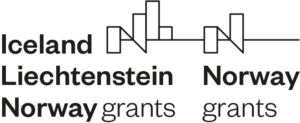EEA and Norway Grants Fund for Regional Cooperation, 2022-2024

Project name: Supporting National Human Rights Institutions In Monitoring Fundamental Rights And The Fundamental Rights Aspects Of The Rule Of Law (No 2018-1-1440)
What?
The EU Agency for Fundamental Rights – together with national human rights institutions (NHRIs) in seven EU Member States and the European Network of National Human Rights Institutions (ENNHRI) – is implementing a regional project to support NHRIs in monitoring fundamental rights and the fundamental rights aspects of the rule of law. The project is funded by Iceland, Liechtenstein and Norway through the EEA and Norway Grants Fund for Regional Cooperation.
The project aims to strengthen the role of NHRIs in the application of the EU Charter of Fundamental Rights at the national level. The project will support NHRIs in Bulgaria, Croatia, Cyprus, Latvia, Poland, Slovakia and Slovenia – which are also EEA and Norway Grants beneficiary states – to make active use of the EU Charter in their work. The following NHRIs are taking part in the project:
- Ombudsman of the Republic of Bulgaria
- Ombudsman of the Republic of Croatia
- National Centre for Human Rights of Slovakia
- Commissioner for Human Rights of Poland
- Commissioner for Administration and the Protection of Human Rights (Ombudsman) of Cyprus
- Human Rights Ombudsman of the Republic of Slovenia
- Ombudsman of the Republic of Latvia
Why?
FRA’s 2020 report Strong and effective national human rights institutions – challenges, promising practices and opportunities demonstrated the potential to further strengthen NHRIs in the EU. FRA has developed this project to put into practice some of the report’s opinions. It draws on the expertise of ENNHRI regarding rule of law monitoring by NHRIs.
This is in line with the Council of Europe’s Recommendation to strengthen NHRIs. It reinforces the role of NHRIs in enhancing the application of the EU Charter (see the 2020 EU Strategy to strengthen the application of the Charter), the EU’s rule of law mechanisms, as well as the Charter-compliant use of EU funds (see Regulation 2021/1060, the ‘Common Provisions Regulation on 8 EU Funds’).
How?
The project will support the NHRIs in developing and implementing activities to promote the application of the EU Charter nationally. It will strengthen their staff knowledge about the EU Charter, their capacity to monitor fundamental rights and fundamental rights aspects of the rule of law. The latter will build on ENNHRI’s methodology of the rule of law reporting. While NHRIs will be able to draw on the wealth of national data collected by FRA, this project will particularly make use of FRA’s expertise on the EU Charter and existing training material such as FRA’s e-learning EU Charter tool.
The project will include promotional events. Lessons from the project will be shared across the EU, through the network of NHRIs and other stakeholders. Planned project outputs include methodologies, toolkits on the EU Charter, capacity building events and reports about the application of the EU Charter and the human rights structures in the partner countries. The project will run until the end of February 2024.
Local context
In addition to the activities that are the same for all project partners, it is planned to implement in Latvia:
- Conversation cycle “Ask! We will answer” (the tittle will be specified). The European Charter of Fundamental Rights includes the following discrimination criteria: sex, race, colour, ethnic or social origin, genetic features, language, religion or belief, political or any other opinion, membership of a national minority, property, birth, disability, age or sexual orientation;
- Will make and present teaching methodical material with tasks for the older classes of elementary school about dignity. The material would provide basic information about dignity as a basic human right, which is contained in Article 1 of the European Charter of Fundamental Rights;
- Meetings and discussions with the Ministry of Welfare, the Advertising Association and NGOs on possible amendments to the regulatory framework related to gender stereotypes and sexism in advertising.
Deliverables
- The role of national human rights institutions in compliance with fundamental rights in the implementation of European Union funds: The situation of Latvia
- Baseline report on the potential to strengthen the situation of fundamental rights by making greater use of the EU Charter of Fundamental Rights: The situation of Latvia
- State of the Rule of Law in the European Union: The situation of Latvia
- National Human Rights Structure: The situation of Latvia
- Ombudsman’s human rights moot court 2023 (information only in Latvian)
- Collecting promising practices on Charter use in the Ombudsman’s work
- A Guide to Applying the New Obligatory Charter Conditionality
- “Spark your empathy!” – a series of talks (videos) to eradicate discrimination
- Teaching material on dignity for high school students (presentations available in Latvian)
- Discussion about gender stereotypes and sexism in advertising
